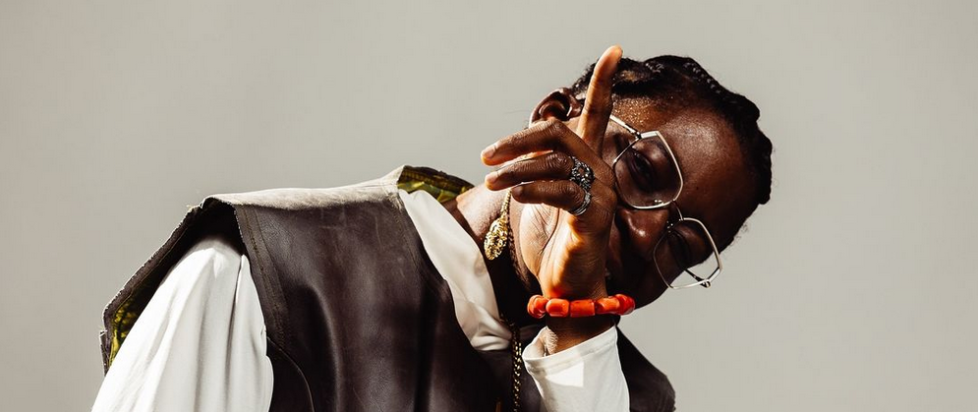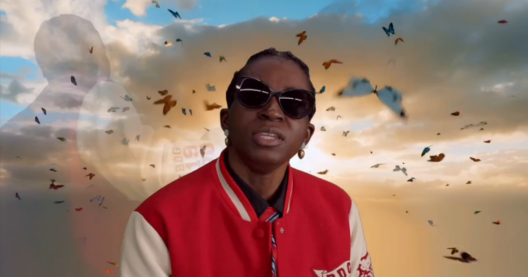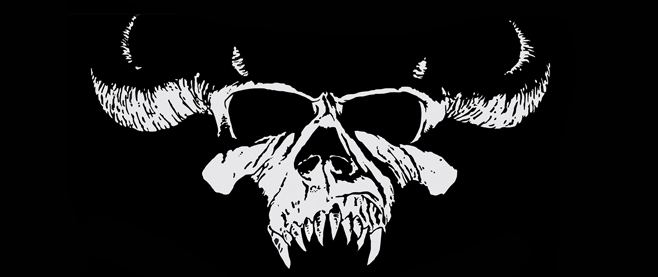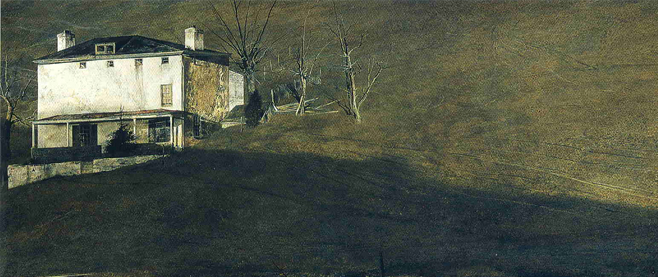
How an African Princess Became a Singer of a Queer-Affirming God
Music is a medium that inherently calls for daring. You’re putting yourself out there as a performer in front of everyone. Each facet of who you are is going to be critiqued and analyzed. Imagine not just having to grapple with people liking or disliking your work, but your sexual identity, religion, and cultural upbringing, all of it tied together in your music. Few would be that brave, and that’s what makes Zochi so incredibly fascinating. An heir to an African throne yet raised in the heart of Canada, Zochi is blazing a trail all her own with R&B Afrobeats encapsulating bold feelings about God, love, and embracing her identity as a lesbian Christian.
What’s incredible when meeting her is that right away, you relax. Before we got started in our interview, discussing the growing diversity in the world of music as it grows more decentralized. There were even a few jokes about how Hallmark Channel movies are only just starting to include LGBTQA+ representation, “We need it to happen a little bit more, like, faster. We need to go quicker, you know? And that’s kind of like where, that’s the mindset that I have. It’s like, I’m not slowing down for nothing or letting the world define how I want to approach my art, you know?” Zochi explains.
Originally growing up in Nigeria, Zochi’s family would eventually move to Canada in 2013. Her grandfather was one of the last kings of Africa – the Late King Samuel Paul Uwakwe (S.P.U OGAN) of Okrika Rivers State Nigeria – the Amanyanabo of Okrika. While her memories of him are blurry, her time growing up in Nigeria would be foundational to her interest in the arts. She recalls, “Growing up in Nigeria, there’s not a lot of outside stuff to do. ‘Cause one, we were still struggling with not having constant electricity back then. As a kid and just looking around, you know, you’re bored. There’s nothing to do. So I had this little niche where I just like to sing. I would just sing random melodies, over and over again.”
Inspirations were wide ranging, from contemporary to classic, including Lionel Richie, Lauryn Hill, Chris De Burgh, Celine Dion, and Whitney Houston. “I like to embrace everything that’s around me, but I’m also at the stage of my career where it’s like, I need to find my authenticity as I keep going. So it’s like – I can acknowledge the music that’s around me, but really what inspired me to do R&B was hearing Richie come on the radio at 12 A.M. in the morning, just hearing those immersive vocals and daydreaming about a world outside of where I was living. Like what would that be, to be free? Because, in Nigeria, there’s no such thing as ‘being gay’. That’s the law. So, it was like an escape for me.
“I’ll play the drums with my fingers on any surface that I can find,” she says, gesturing with a smile as she taps her desk. “It came naturally to me, and then I started to lean more and more into it. Up until grade eight, when I started this little music group where I was like the key songwriter. It let me tap into a part of myself that I felt like I couldn’t really have seen in conversations, like talk about emotions and really, my thing? I’m big on love, really been a lover since I was a kid, so just being able to express how I feel about a girl. That’s something I wasn’t able to communicate with my siblings or my friends – the intensity of that emotion. I pretty much hid it in a song.”

However, Zochi’s time to come out would come and come to find her faith on Canadian shores. “I came out in Canada,” she explains. “This is where my love for God comes in as well. I wasn’t actually the biggest God believer as a kid. I didn’t care about whatever the Bible said, because I was raised to believe I would never be accepted, until I moved here. I’d lived experiences that really knocked me down, like not being able to fully afford my tuition, being in a whole new country, and facing the fear of, ‘Okay, wait, I’m in this place’ where it’s like… everybody can be who they are. No one says ‘don’t be gay’. And I’m still scared inside. So it’s like, this is deeper than just being, than just the law, this is like something now that’s affecting me as a human, because I’m in a space where I’m told you can be who you are, but then I’m still scared to approach that.
“Since I come from a Christian family, I decided one day, I’m gonna read this Bible. My mom always sends me Bible passages. And I read the Bible. God gave me a testimony of my own – got into an accident, survived that accident. I realized like life can really, in a flash, like right before your eyes, gone in two seconds. That incident told me you have to live for who you are. So you have to live your truest self. If you die, no one is going to know how good of a dream that you have, or you’re never going to meet the people that can help you, you know, fast forward that dream, never living to your full potential. So I just started to learn about God for myself. And He’s been leading me this whole time down to the music.”
It’s that intimate, personal journey that also embodies her process, such as with her latest hit single, “Alone (Whole Again)”. “It all feeds back to my struggles, most of it just being internal, from when I wasn’t accepting myself, my sexuality. Like, I never used to do Afrobeats. I was focused on R&B and you can hear that even in the Afrobeats that I do, it’s like a blend of both. So I just decided, ‘Okay, I need to write a song that makes me feel super connected with who I am.’ The first version of the song came together in 2021. I first wrote that version and it was more of a… ‘How can I talk about this love that I feel for women and for God?’ But in music, I can frame it as something that’s very pure, very natural, that’s not wrong, you know?” And so, she rewrote the entire song again, “from the focal point of loving a woman and loving God and how I can and bringing those two together. And Corinthians, how it says love is the greatest of all the three things that last forever.”
Every facet of her life and journey helps inspire her life, both the highs and lows. “It’s been a struggle, because coming from a place that doesn’t really accept you is not… it’s not the sweetest thing, you know, but I am a product of my environment. I grew up in Nigeria as a kid. I am a black woman. I’m an African woman. So obviously like all of those things really just they exist inside of me. So I wanted to tap into that. And I used to be scared to do Afrobeats because I thought it was such a very tough genre, but I’m like, ‘Wait, why are you scared? You’re African!’ So if you’re a musician, you can, if you want to sing in the cadence of Afrobeats, you can go ahead and do that. And I proved that point with ‘Alone (Whole Again)’.
“I just don’t care anymore what anybody has to say. My mindset is: There’s a lot of people that we need to reach, especially the LGBTQ community. That’s my family. I know what it feels like to feel like you’re not enough. And I also know what it feels like to love this Creator that everybody talks about, but for some reason you’re not supposed to talk about Him. So it’s just – I come from a place where I’m still healing and I can acknowledge my hurt. And I just free fall into my strength, which would be the music that I make.
“And so I, whenever I’m writing a song, whenever I’m singing a song, I make sure that I’m coming from a place of being free, just being free. I let my emotions speak through my song. That’s how I approach it and I’m doing it because for me, I’m doing it for God, I’m doing it for the people who listen to my music, and I just want everybody to be on that same wavelength if possible. Just don’t worry about the world.” It’s a vibe many are resonating with across Zochi’s eleven singles, and her recently released EP, AFRIKAANMAN FAIRYTALE.
In addition to her solo work, she’s already building up a wealth of collaborations, including with producer RoyMade, who produced five songs on Zochi’s EP. “My collaboration with RoyMade has been phenomenal. Again, shout out to technology. We’d connect over video call, FaceTimes, Instagram, because Roy is from Malawi. He’s from Malawi all the way in East Africa. We met on Instagram, really. And we just started talking. I love the beats that he was making. So with Alone, like I said, there was an original version. And I was like ‘Yo, bro, you want to go ahead and like, remix the song for me, use my vocal, like my harmonies, my melodies, whatever I sent you, my whole stamp?’ and we’ve just built such a dope relationship.”
She grins as she adds, “Honestly, I’ve connected with some of the most amazing people online. People who show up, do the work, and respect what everybody brings to the creative space? It’s such an awesome feeling.” This emphasis on freedom in collaboration was foundational as well to her music video for “Alone (Whole Again)”, granting immense creative liberties to her team to explore the possibilities.As she looks to the future, Zochi eagerly reports that she’s already hard at work on new music, as well as performances throughout the year.
When asked about towing that careful balance between being both openly lesbian and a believer, Zochi says, “God made us this way, so that’s a good place to start from. It’s about love, at the end of the day. You know, we’ve had a lot of preachers interpret what the Bible means for us, and it’s not really In line with when you really live your life as a human being. You start to question certain things. So I would say – you love somebody authentically. This is who you’ve always been. Don’t let anybody else try to paint what that picture looks like for you. Because one thing’s for sure, God died for you. Love was the greatest most important thing. He wants you to love. It’s like, chase after God for yourself.
“Show up as human as possible. Show up with all of your problems. I’m telling you, He wants them. He knows exactly what you’re dealing with. He knows how you feel. And there’s no shame in any of that. And don’t go to any church that tells you otherwise. Don’t listen to nobody that tells you otherwise.” She chuckles, “We can be rebellious in that aspect, you know. We can say, ‘No, we’re not going to listen to anything that diminishes us as people.’ But. Yeah, it’s, God made you that way. God made us this way. It’s a personal thing, you know, it’s a personal relationship.
And you can never lose with love. Ever.”
You can find Zochi’s latest on Spotify and YouTube, as well as her website.
———
With over ten of writing years in the industry, Elijah’s your guy for all things strange, obscure, and spooky in gaming. When not writing articles here or elsewhere, he’s tinkering away at indie games and fiction of his own.




